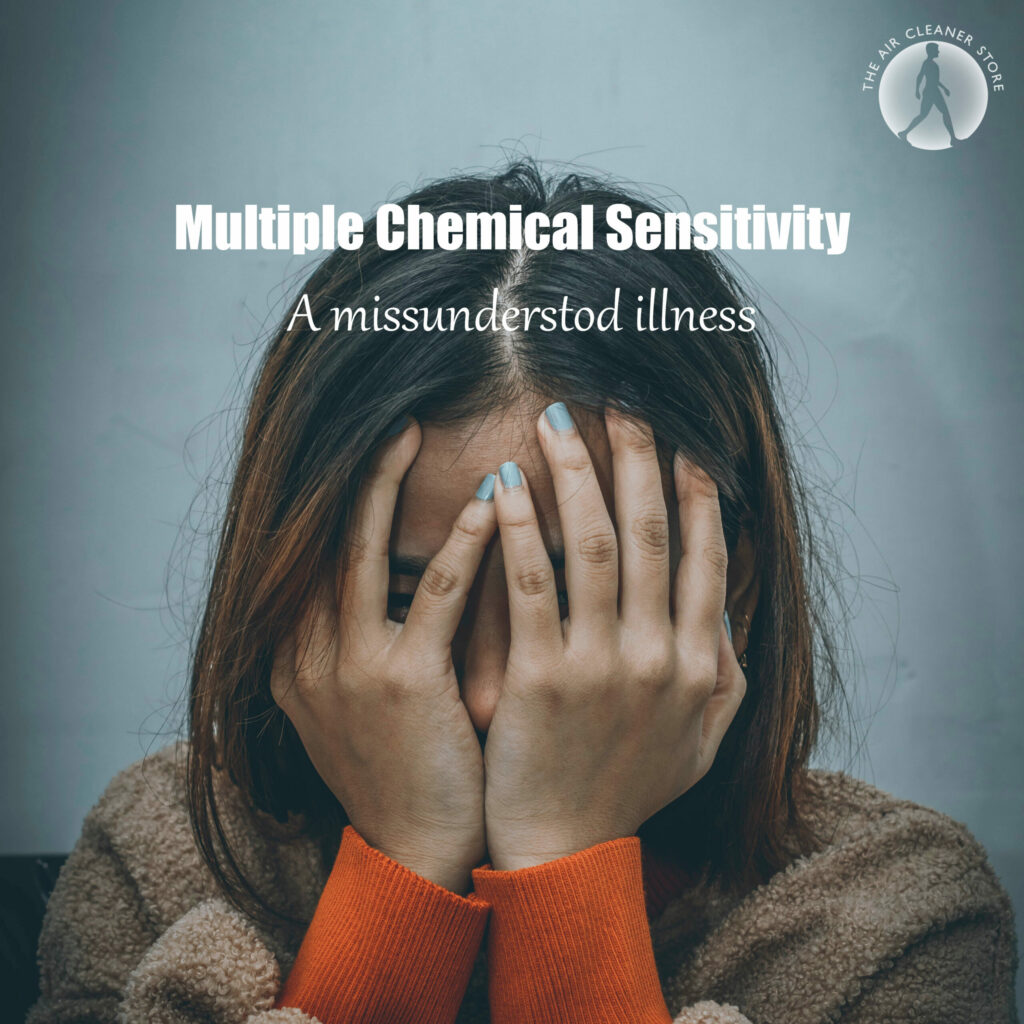Throughout history, health problems that were not clearly understood and had no apparent cause, were often dismissed as psychosomatic or psychological in nature. Asthma was classified in this category until the 1890’s when it became recognized as an inflammatory condition tied to the immune system.
In the same way that Asthma was misunderstood, Multiple Chemical Sensitivity Syndrome (MSC) is a present-day health problem that is erroneously perceived as a psychological disorder rather than a legitimate physical condition.
What is MCS Syndrome?
Since the 1940s, there was controversy and confusion around multiple chemical sensitivity (MCS). Present-day MSC Syndrome afflicts a growing number of people. While the presence of this condition is questioned, physicians and pediatricians agree that there is a significant subculture of patients who go to great lengths to avoid exposure to chemicals that are commonly found in modern homes, classrooms, and workplaces.
While MCS is sometimes referred to as an allergy, it does not present as a typical allergic reaction. Allergies, toxicity, neurobiologic sensitization, immune system reactivity and inflammation are some of the hypothetical causes of MCS. Some studies have linked MCS patients to elevated rates of depression, anxiety, and somatoform disorders. However, there is not enough scientific evidence to prove that any of these pathologies are secondary to MCS.
Theories of the etiology of MCS Syndrome are grouped into four broad categories:
- Physical (allergic response, direct toxicity and neurobiologic reactions)
- Stress ( including psychiatric conditions such as somatization, depression and anxiety)
- Misdiagnosis
- Illness belief (the individual’s belief causes their symptoms)
Symptoms and Most Common Triggers of MSC
MCS syndrome patients experience serious symptoms that interfere with their everyday life and work. They often report being symptom free prior to the chemical exposure. Chemical exposure produces reactions to the offensive chemical. Each new exposure produces a worsening of their reaction.
The syndrome has been related to a broad variety of symptoms, although the majority of them fall into one of three categories:
- central nervous system symptoms
- respiratory and mucosal discomfort
- gastrointestinal issues.
Fatigue, trouble concentrating, depression, memory loss, fatigue, dizziness, headaches, heat sensitivity, and arthralgia are commonly reported symptoms by people suffering from MSC.
-
MCS Syndrome and The Immune System
MCS has been explained by three basic physical mechanisms:
- Allergic response
- Direct toxic exposure effects
- Neurobiological sensitization.
All three basic physical mechanisms have been associated with MCS with immune system responses. It is well known that the immune system’s association with environmental chemicals can result in disease. Based on the commonalities it shares with other hypersensitivity illnesses, MSC Syndrome can be explained by the following thesis:
Initially, patients with chemical sensitivity often have many health complaints without having a specific diagnosis of a disease. They are experiencing a chemical-induced disease at an early stage. Over time, these chemicals, especially in the airway, activate irritant receptors, resulting in modulations of vasomotor tone. This response is amplified in chemically sensitive patients and can occur in various organs through acquired neuronal pathways. As the disease progresses, inflammation of the foci cells emerges with macrophages, polymorphonuclear cells and possibly lymphocytes infiltrating the infected tissue. The patient develops a diagnosable disease at this stage, and is usually treated with :
- Corticosteroids
- Nonsteroidal anti-inflammatory drugs,
- Bronchodilators
- Other pharmaceuticals as required.
From here, antigen processing and complex immunological responses to the chemicals are also activated by the inflammatory response. Further symptomatology, including effects on the central nervous system, is caused by immune mediators. From here, Chemical Sensitivity can lead to tissue damage as a result.
The word “chemicals” refer to a wide variety of natural and man-made chemical pollutants. Even though this list very long, among the most common are :
- Aerosol air freshener
- Aerosol deodorant
- After-shave lotion
- Asphalt pavement
- Cigar smoke & cigarette smoke
- Colognes, perfumes
- Diesel exhaust & Diesel fuel
- Dry-cleaning fluid
- Furniture polish
- Garage fumes
- Hair spray
- Insect repellant
- Insecticide spray
- Laundry detergent
- Nail polish
- Nail polish remover
- Oil-based paint
- Perfumes in cosmetics
- Shampoo
- Tar fumes from roof or road
- Tile cleaners
- Varnish, shellac, lacquer
Conclusion
Researching the correlation between multiple chemical sensitivity and other hypersensitivity illnesses may help narrow down the possible mechanisms in this illness and provide answers to patients, easing the burden of having an illness that is not fully understood or recognized.
Since there is no yet defined cure for this condition, prevention, treatment and management are key to promoting a normal life for MSC patients.
The development of a successful physician-patient relationship is necessary for managing this condition. Physicians who acknowledge the existence of this disorder can avoid the use of unproven, costly, or potentially harmful tests and treatments. Promoting a healthy chemical free environment can play a major role in the patient’s coping mechanisms and wellbeing. The treatment goal is to optimize recovery through monitoring and controlling the symptoms , rather than curing the symptoms. While some of the ‘chemicals’ that trigger the patient’s condition can be completely avoided, the exposure to some chemicals can be inevitable. In such cases, a high quality air cleaner can play a profound role in the patient’s recovery and wellbeing.
